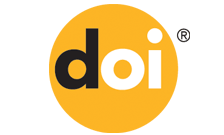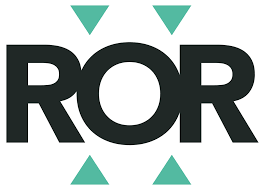
Publishing, citing, and licensing research data
On this page we would like to give you an understanding of how to publish research data. We refer you to platforms where you can publish your data. You will learn more about metadaten and how you can use them to improve the findability of your published data. We explain what licensing options are available and how you should legally and ethically handle your data. Finally, we show you how to cite research data.
Publishing in repositories
Options
We recommend publishing your research data on subject-specific platforms, which frequently offer special features tailored to the data. They also increase the visibility of your research data because the platforms are better perceived in the scientific community.
If you cannot find a subject-specific repository for your research data, you can publish in a general repository or on the University of Rostock's document and data server RosDok.
Platform finder
Publishing on RosDok
Quality criteria of research data: metadata
Describing research data correctly
The dataset and the data it contains must be described with appropriate metadata so that the dataset can be identified and found. Specifying metadata improves the visibility of your research data on the web. It makes sense to collect it as early as possible and keep it up to date throughout the research project. In most cases, metadata is specified by the repository. Common details include:
- data set details,
- information about the author(s) and creator(s),
- a short title describing the data,
- a short summary about the data, and
- the year of creation.
Information about the data in the dataset
The dataset should also contain a document (e.g. readme.txt) that briefly explains the data and how it is used. The layout and structure of the file depends on the type of data and, if applicable, the subject area.
Choosing the right data formats
In addition to specifying metadata, the choice of data formats used is also important. Formats for long-term archiving.

Citing research data
Citation options
There are different ways to cite research data:
Citation as recommended by FORCE11:
Data citation
Author(s) (publication year): Title of research data. Data repository or archive. Version. Global persistent identifier (preferably as a link).
Software citation
Author(s) (publication year): Title of the software (version information) [form, for example computer software] Source as URL and/or DOI (date of retrieval)
Further citation options:
- This ZBW document presents citation according to the da|ra metadata schema.
- DataCite Schema
- Citation File Format (CFF)
DOI
To ensure that your research data can be found and cited in the long term, the repository of your choice should assign a Digital Object Identifier (e.g. a DOI). A DOI is a unique and permanent digital identifier for physical, digital or abstract objects. A DOI guarantees the findability of your research data on the web and serves as a citation. You can find more information at doi.org.
Example: doi:10.1371/journal.pbio.0020449
You can obtain a DOI from the University Library, or your publication platform will assign one.

ORCID – IDs for authors and contributors
ORCID (Open Researcher and Contributor ID) is a free, unique, persistent identifier for individuals engaged in research, scholarship, and innovation activities. An ORCID can be used to distinguish between people with the same name. You can find more information on the ORCID website.
PID Network Germany
The PID (Persistent Identifiers) Network Germany supports the assignment of persistent identifiers for the unique referencing of various research-relevant objects, institutions, organisations, applications, and data. You can find more information on the website of the PID Network Germany. They are currently developing rules for the standardised referencing of large devices.
ROR: IDs for organisations
ROR (Research Organisation Registry) is a community-managed registry of open persistent identifiers for research organisations. More information can be found on ROR.org. There are more than 110,000 IDs and metadata registered in ROR. The data is CC0 and openly available via a search interface, a REST API, and a data dump.
Licensing and open access
Open access means the unrestricted and free access to scientific information. Open access is part of open science – the idea that science should be freely accessible to all. The FAIR principles support research by formulating how research data should be published. According to the FAIR principles, data should be "findable, accessible, interoperable, and re-usable".
The Creative Commons are copyright licences and tools. They are modularly designed to provide copyright-protected works with rights for further use by the author. To select a CC licence, Creative Commons offers the License Chooser.
The DEAL consortium provides assistance for choosing a suitable licence on its website. Usage agreements are another way of defining the rights of use for research data. In this PDF from Gesis you will find an example of a licence agreement.
If the research data to be published is software, it is advisable to choose a software licence. Other licensing models usually provide insufficient conditions for content protection or release.
The GNU Free Documentation License is a copyleft licence intended for free software documentation, but it is also used for other free content.
Legal and ethical aspects of research data management
In many departments of the University of Rostock, researchers work with personal data, which is subject to data protection legislation. The legal regulations specify how such data is to be handled. The provisions are regulated in the DSGVO, the BDSG and the MV Data Protection Act. The BERD@NFDI’s interactive Virtual Assistant (iVA) helps researchers to check which data protection regulations must be observed in the context of a research project. By means of selected questions, users are guided through the relevant regulations of the data protection laws (DSGVO, BDSG, LDSG).
Contact
Antje Meuser
antje.meuseruni-rostockde
Tel.: +49 381 498-8630



